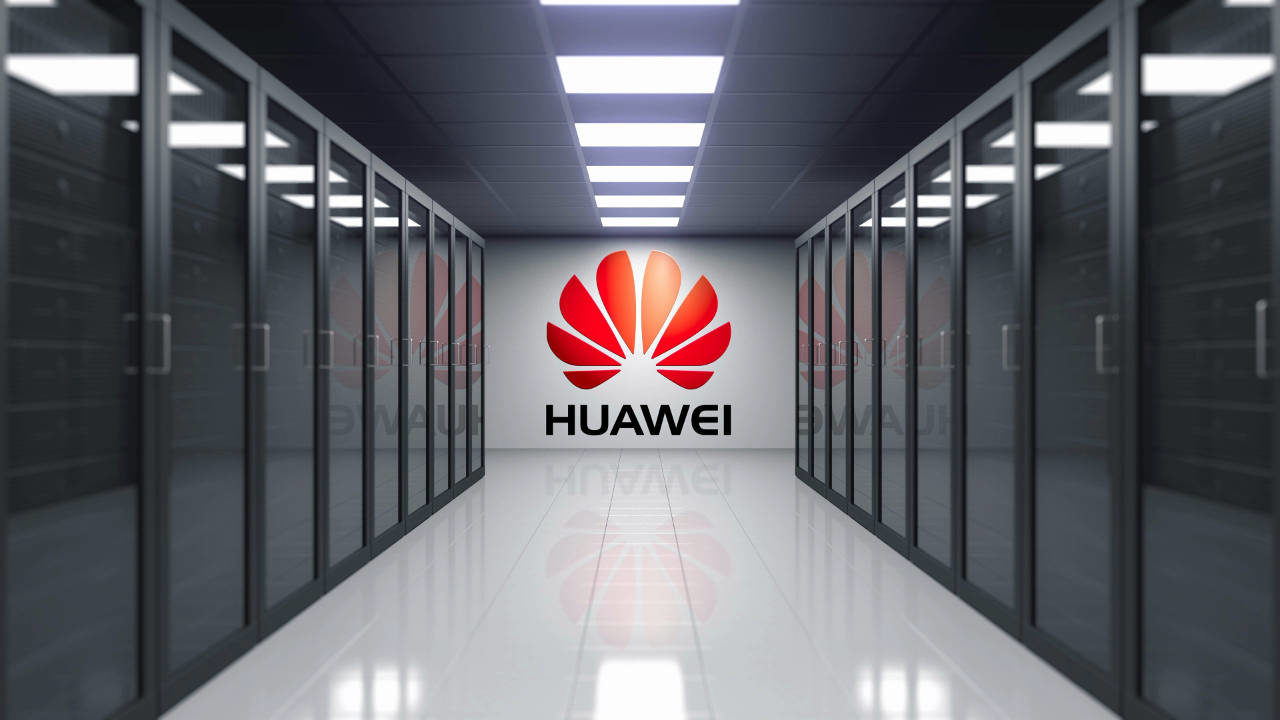
The aftermath of the arrest – during a transit stop in Vancouver on December 1, 2018 – of Meng Wanzhou, the chief financial officer (CFO) of Huawei, the noted giant Chinese global company, made the world’s top headlines. The Canadian authorities acted on a warrant issued by a New York court seeking her extradition to the United States, to face charges of abetting her company’s trading with Iran. [1]
Her continued detention, even after negotiating an $8 million parole, pending her extradition hearings scheduled as far off as January 20, 2020, or 13 months later (in reality, even going farther beyond), raised a wide range of questions. Many were of a serious legal nature, but apparently prompted by serious political motives.
Due Process and Certain Petty Maneuvers
The fussy questions regarding due process included: Why was she treated like a criminal without a trial and was locked up while being initially denied parole by a Vancouver prosecutor who refused to accept a bail by her husband because he was not a Canadian citizen?! Even after she was finally paroled, she continued, for some time, to be kept under house arrest in Vancouver wearing leg fetters, as if she had already been convicted a criminal. Later on, although given the freedom to move around, she remained under 7/24 surveillance, enforced in part by a GPS tractor anchored on her left ankle.
Meng was to be extradited to the U.S. for trials for her role in abetting her company’s trading with Iran, which was a breach of U.S. policy and law banning trade with Iran. But, this ban was unilateral U.S. policy and law. Unless sanctified by the United Nations with a large enough vote margin manifesting an opinio juris communis (or general will of the world community), it would have no binding force on China and, for that matter, on Canada or any other foreign country. Maybe for this reason, the charge in her extradition proceedings was swiftly re-focused on fraud, or that Meng had fraudulently hoaxed banks like HSBC into funding the transactions in Iran conducted by Skycom, an affiliate of Huawei.
On another front, the New York court had issued the warrant as early as August 22, 2018 for Meng’s arrest during her forthcoming transit stop in Vancouver 100 days later, on December 1, 2018. How did the United States so far ahead get to know Meng’s precise itinerary, unless by means of electronic espionage over Meng and, possibly, over her company in China? Yes, hacking is, precisely, what Washington often accuses the Chinese of undertaking against the U.S.
Another question had to do with the persistent U.S. attempts to urge European and other countries not to purchase Huawei’s AI products by labeling them “security risks,” linked to their alleged use of built-in, though unproven, eavesdropping chips. The Trump administration even placed a ban on Huawei, calling on 150 U.S. companies not to trade with it.
In all, what was the rationale for this massive U.S. campaign out to get Huawei? Could it be prompted by concerns over the unrivaled technological advance in the company’s 5G products? By contrast, U.S. companies lagged far behind at the 4G stage. And, according to one report, 5G equipment are 100 times faster and can predict weather conditions like 30 years ahead of time.
Ultimately, is it possible to deduce a motive from these puzzles – namely: Huawei’s real fault was its unrivaled technological edge that posed an unbeatable challenge for the U.S.? The ostensible charge that the company had breached the U.S.-imposed ban on trade with Iran was a convenient pretext, for a scheme to kill a menacing competition from China as an intimidating rival?
On the due process issue, Meng’s lawyers on March 3, 2019, filed a suit before the British Columbia Supreme Court, imploring that she had been detained, thoroughly searched, and interrogated by agents of the Canadian Border Services Agency (CBSA) before she was finally informed that she was under arrest. Later, her legal team argued that her case should be tossed out because her arrest was an abuse of due process.
The Canadian authorities merely replied that Meng made unspecified “misrepresentations” during her interrogations. As can be expected, these so-called “misrepresentations” became part of the overall fraud charges the U.S. leveled against her. Hence, Canada was colluding with the United States in the whole case against Meng’s fraud.
In a tit-for-tat retaliation, China arrested two Canadians in China on flimsy charges, hoping it would force Canada to release Meng in exchange, but to no avail.
In subsequent litigations, Meng’s lawyers brought up a vitally important issue in her defense against extradition – that the charge she was wanted for trials in the United States was not a crime in Canadian law. This was to point out that the case against Meng did not meet the requirement of the principle known in international law as Double Criminality, since the alleged breach of U.S. law banning Iranian trade did not violate Canadian law. Defense lawyer Scott Fenton described US President Donald Trump’s comments suggesting Meng could be part of a trade deal with China as “intimidating and corrosive of the rule of law.” [2]
Reputed Links of the Meng case with the U.S. Trade War
There was good reason to relate the Meng Wanzhou case – maybe we should call it the Meng-Huawei case – to the larger U.S. trade war with China and, more in particular, was generated by a fear of China’s rapid ascent as an economic contender, including its edge over transformative technology. To appreciate this point, we need only to trace the U.S. fears to the factors that had spawned its trade war in the first place.
By 2011, China surprised the world when it overtook Japan as the world’s second largest economy, a position Japan had occupied for over three decades. Three years after that, China replaced Germany as the world’s largest trading nation. And, America’s enormous trade deficits became a fixture bedeviling US-China relations. Hence, the cries of the “China Threat” began to shoot to the skies. The skirmish it generated with China during Obama’s Presidency simply degenerated into a drawn-out, costly, even senseless conflagration under President Trump after 2017. The trade war, in other words, assumed the proportions of a nasty new Cold War. And, it shows no sign of receding after Joseph Biden replaced Trump in the White House.
The persistence of the trade war from “Trump to Biden, in fact, offers proof that the trade war, in the consensus among some analysts, was inseparable from America’s new Cord War which, I would argue, is part and parcel of Washington’s hegemonic duel with China.
The U.S. Fear and Ban on the Huawei Co. & Beyond
The fear of America being displaced as the reigning hegemon by a rising China that is technologically-savvy and economically powerful, touched a sensitive nerve in Washington’s foreign policy limb. It was upsetting to America’s habitual preoccupation with maintaining its leadership in the Pacific region over two centuries, as noted by Michael J. Green in his findings. [3] Furthermore, even though the U.S. did not make its 5G equipment, it was using its military, security, and intelligence heft to pressure allies not to use China’s technology. To Trump’s astonishment, however, not all of U.S. allies shared the same apprehension. The U.K. and Germany, for example, did not reject Huawei outright. And, precisely because of the advanced 5G technology that its products offered, Huawei was able, for example, to enter into over 50 sales contracts with foreign countries in 2018, U.S. maneuvers not withstanding. These included deals with Portugal, France, and Germany, implying that Huawei was gaining trust in an increasing number of America’s close allies. [4]
The bottom line, as one analyst pointed out, was that China’s lead in building the next-generation network was seen as a sign of a decline of U.S. tech leadership in the mobile internet field, and as a symbolic point of no return for Chinese economic supremacy. [5]
Fate of Meng Wanzhou Caught in the U.S. Hegemonic Duel with China
In conclusion, I think it is fair to say that the whole episode of the ordeals inflicted on Meng and her company has been, ultimately, driven by Washington’s desperate attempt to keep its hegemonic leadership intact in the face of the perceived China threat. The U.S. pursuit of Huawei’s CFO is inseparable from a strategy intended ultimately to thwart the rise of China as a rival. As such it has been an abuse of the extradition process.
Joseph Biden’s administration, no less than that of his predecessor, is using the Meng case to further U.S. foreign policy aims. The case is more political than legal. As noted above, Washington had backed up its charge against Meng by claiming that she had deceived banking institutions like HSBC into funding the transactions conducted in Iran by Skycom, an affiliate of Huawei, by concealing Skycom’s true identity. But, after two senior HSBC executives revealed in a document that Meng had not defrauded the bank, the Biden administration rejected their denial and considered it irrelevant to an extradition hearing in connection with the fraud charges against Meng. If this is any indication, it demonstrates that Meng’s ordeal has yet to see an end in its long drawn-out upheaval.
Author: James C. Hsiung
James C. Hsiung is Professor of Politics at New York University, and author and editor of 18 books on Pacific Asian international relations, U.S. Asian relations, Chinese foreign policy, and international law. His current research interest is in sea power and the twenty-first century. At NYU, he teaches comparative politics of China and Japan, international relations of Asia, international law, and international governance.
The opinions expressed in this article are those of the authors and do not reflect the opinions of InHouse Community Ltd, or it’s employees.
[1] “A Timeline of the Cases of Meng Wanzhou and the Canadians Detained in China, Canadian Press, 24 December 2018; also the timeline of the Meng Wanzhou case in Wikipedia, the free encyclopedia..
[2] Mike Hager and Xiao Xu (10 May 2019), “Extradition Proceedings delayed for Huawei executive Meng Wanzhou.” The Globe and Mail. Retrieved 21 May 2019.
[3] Mark J. Green, By More Than Providence: Grand Strategy and American Power in the Asia Pacific Since 1783. New York: Columbia University Press, 2017.
[4] “Huawei 5G Tech Still Trusted by Several Countries, Including France and Germany,” by Jed John, sourced from the Internet, August 22, 2019.
[5] Brian Fung, “How China’s Huawei Took the Lead over U.S.,” sourced from Internet, Sept. 19, 2019.











